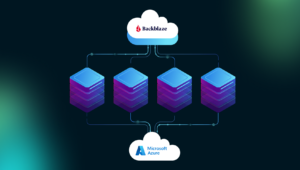The Rise of Data-Driven Marketing
Gone are the days of relying solely on gut instincts and intuition to make marketing decisions. The rise of data-driven marketing has ushered in a new era of precision and efficiency, where every marketing dollar spent is backed by insights derived from data analysis. By harnessing the power of data, businesses can gain a deeper understanding of their target audience, identify trends and patterns, and personalize their marketing efforts for maximum impact.
Harnessing the Power of Big Data
At the heart of data-driven marketing lies big data – the massive volumes of structured and unstructured data generated from various sources such as social media, website analytics, customer transactions, and more. By leveraging advanced analytics tools and technologies, businesses can sift through this vast sea of data to uncover valuable insights that can inform their marketing strategies.
Understanding Customer Behavior
One of the key advantages of data-driven marketing is its ability to provide businesses with a deeper understanding of customer behavior. By analyzing data related to customer interactions, preferences, and purchase history, businesses can create detailed customer profiles and segment their audience based on factors such as demographics, interests, and buying habits. This enables businesses to tailor their marketing messages and offers to resonate with specific segments of their target audience, increasing the likelihood of conversion.
Personalization at Scale
Personalization has become a cornerstone of effective marketing in today’s hyper-connected world. By leveraging data-driven insights, businesses can deliver highly personalized marketing messages and experiences to their customers at scale. Whether it’s through targeted email campaigns, personalized product recommendations, or dynamic website content, personalization allows businesses to connect with their audience on a deeper level, fostering brand loyalty and driving repeat business.
Optimizing Marketing Campaigns
Data-driven marketing allows businesses to take a scientific approach to optimizing their marketing campaigns. By tracking key performance metrics such as click-through rates, conversion rates, and return on investment (ROI), businesses can measure the effectiveness of their marketing efforts in real-time and make data-driven adjustments to improve performance. Whether it’s tweaking ad creative, adjusting targeting parameters, or reallocating budget to high-performing channels, data-driven insights empower businesses to continuously refine and optimize their marketing campaigns for maximum results.
Predictive Analytics and Future Trends
In addition to optimizing current marketing efforts, data-driven marketing also enables
businesses to anticipate future trends and consumer behavior through predictive analytics. By analyzing historical data and identifying patterns and correlations, businesses can make informed predictions about future market trends, customer preferences, and emerging opportunities. This foresight allows businesses to stay ahead of the curve, proactively adapt their marketing strategies, and capitalize on emerging trends before their competitors.
Challenges and Considerations
While data-driven marketing offers immense potential, it’s not without its challenges and considerations. Chief among these is the need to ensure data privacy and security. With increasing scrutiny around data privacy laws and regulations such as GDPR and CCPA, businesses must prioritize the ethical collection, storage, and use of customer data to maintain trust and compliance. Another challenge is the sheer volume and complexity of data available. With so much data being generated every day, businesses must invest in the right tools, technologies, and expertise to effectively collect, analyze, and derive actionable insights from their data. Additionally, businesses must guard against the risk of analysis paralysis – the tendency to become
overwhelmed by data and unable to make timely decisions.
Conclusion
In conclusion, data-driven marketing represents a paradigm shift in the way businesses approach advertising and marketing. By harnessing the power of data, businesses can gain a deeper understanding of their customers, personalize their marketing efforts, optimize campaigns for maximum impact, and anticipate future trends and opportunities. While challenges exist, the benefits of data-driven marketing are undeniable, offering businesses the opportunity to stay ahead of the curve and drive growth in an increasingly competitive marketplace.







